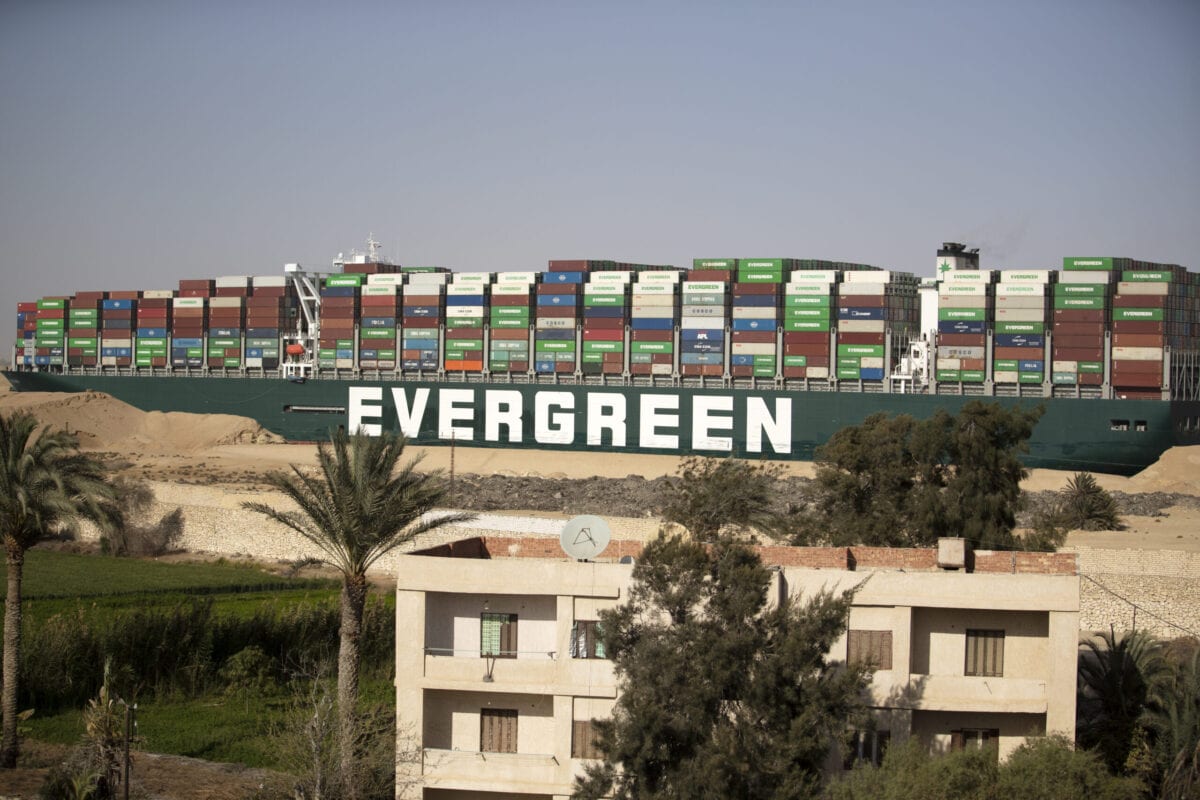
Impunity rules the day when those assigned with responsibilities are allowed to abandon them without consequences. This happens frequently in dictatorships, where economic opportunities favour those within the inner circles; bribery and corruption are prevalent, and widespread injustices are commonplace. The rule of law is compromised as those charged to protect become part and parcel of the problem. Police and security agencies serve the regime rather than the people.
Egypt under the regime of President Abdel Fattah Al-Sisi has become a model dictatorship. Dictatorial culture permeates the whole of society. The administration of the Suez Canal is not exempt from such influence.

A general view of Cape Point is seen on May 8, 2010 on the southern tip of the Cape Peninsula, some 50 kms south of Cape Town, South Africa [GIANLUIGI GUERCIA/AFP via Getty Images]
We should not have been too surprised, therefore, when the MV Ever Given container ship ran aground on the sandy banks of the canal creating chaos and preventing the passage of goods from around the world. According to the data firm Refinitiv, it is estimated that the blockade has cost Egypt, which considers the canal a source of national pride and crucial revenue, over $95 million in tolls. At least 367 vessels, carrying everything from crude oil to cattle, have been backed up at both ends waiting to traverse the canal. Dozens of others have taken the long, alternative route around the Cape of Good Hope at Africa’s southern tip, a 5,000 kilometre (3,100 miles) detour costing shipowners hundreds of thousands of dollars in fuel and other additional costs.
Although the Ever Given was eventually refloated two days ago, it will take weeks to clear the backlog of vessels. However, this is not the first time that a ship has run aground in the canal and blocked it. In fact, the number of times it is happening is a concern to the shipping fraternity. Like many Egyptians, they blame the challenges of the Suez Canal on high levels of corruption and incompetence arising from the brain drain, which is a consequence of the Sisi dictatorship.
READ: Tanker released by Suez might be damaged, warns Egypt official
Thousands of skilled Egyptians and visionaries have left their country under Sisi and the previous dictator, Hosni Mubarak, in search of better opportunities elsewhere. We see Egyptian citizens holding important positions in Europe, the United States and in the wider Middle East and North Africa (MENA) region. More than six million Egyptians lived in the MENA region as of 2016, primarily in Saudi Arabia, Jordan and the United Arab Emirates. Another three million and their descendants live in Europe, North America and Australia, where they have formed vibrant diaspora communities. The brain drain continues to disadvantage Egypt, because mediocrity has, as a result, proliferated across all spheres of life in the country.
Over the past week, Egypt has experienced other avoidable tragedies. In the early hours of Saturday morning, for example, at least 18 people were killed and 24 were injured when a Cairo apartment building collapsed. Building collapses are not uncommon in Egypt, where shoddy construction is widespread in shanty towns, poor city neighbourhoods and rural areas. With real estate at a premium in big cities like Cairo and the Mediterranean city of Alexandria, developers seeking bigger profits frequently violate building regulations. Extra floors often are added without proper government permits. Unscrupulous companies cut corners when construction takes place.
![The Suez Canal crisis - Cartoon [Sabaaneh/MiddleEastMonitor]](https://www.jewworldorder.org/wp-content/uploads/2021/05/blame-the-dictatorship-in-egypt-for-the-suez-canal-fiasco-3.jpg)
The Suez Canal crisis – Cartoon [Sabaaneh/MiddleEastMonitor]
Another tragedy occurred on 26 March, when two trains collided in southern Egypt, killing at least 32 people and leaving 108 injured. The collision caused three passenger carriages to be derailed and crash onto their sides. Video clips on local and social media showed survivors trapped inside and surrounded by debris. According to the Egyptian authorities, the crash was a result of someone on board the train engaging the brakes whilst it was at high speed. An investigation is underway to find and hold to account those responsible.
READ: Suez Canal crisis highlights value of Northern Sea route
How is Egypt going to ensure that such incidents do not happen again? Looking at the unstable state of the banks of the Suez Canal, it will be difficult to provide reassurances. At some point during the rescue mission of the Ever Given, even the shepherds tending their flocks along the canal banks raised concerns about safety. According to at least one expert, the Suez Canal blockage was “an accident waiting to happen“.
Egypt can still remedy the situation, however, particularly with regard to the uncertainties about the future operation of the canal and the efficiency of its administration. The regime could make a start by re-introducing democracy in the country and providing opportunities for the skilled Egyptian diaspora to return to the country. At the same time, I have no doubt that if the canal was seen as a vital part of the infrastructure, and not just a cash cow feeding the regime’s coffers, then efficiency and proper maintenance would be the norm. Until that happens, and as ships get bigger, I have a feeling that MV Ever Given will not be the last mega-vessel to run aground in the Suez Canal.
The views expressed in this article belong to the author and do not necessarily reflect the editorial policy of Middle East Monitor.
 RSS Feed
RSS Feed















 March 31st, 2021
March 31st, 2021  Awake Goy
Awake Goy  Posted in
Posted in  Tags:
Tags: 













